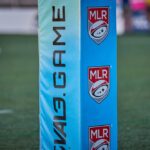Two Major League Baseball players charged in pitch-fixing case

Two Major League Baseball players have been indicted over an alleged scheme to rig pitches in a sports betting fraud worth more than US$460,000.
Emmanuel Clase de la Cruz and Luis Leandro Ortiz Ribera are charged with having conspired with gamblers to manipulate pitch outcomes in games.
They face charges including wire fraud conspiracy, honest services wire fraud, sports bribery, and money laundering.
Federal prosecutors claim that, beginning in May 2023, Clase, a relief pitcher for the Cleveland Guardians, gave inside information to sports bettors about specific pitches, sometimes deliberately throwing balls to influence prop bets.
Ortiz, a starting pitcher, is accused of joining the conspiracy in June, throwing pitches for bribes totaling at least US$12,000 and enabling an additional US$60,000 in winnings.
US Attorney Joseph Nocella Jr. said in a news release that the crimes they are charged with damaged the reputation of baseball, adding “professional athletes, like Luis Leandro Ortiz and Emmanuel Clase de la Cruz hold a position of trust – not only with their teammates and their professional leagues, but with fans who believe in fair play.”
Ortiz was arrested in Boston and is to appear in federal court there before being arraigned in Brooklyn. Clase is not yet in custody. If convicted, each player faces up to 20 years in prison.
Abi Bray brings strong researching skills to the forefront of all of her writing, whether it’s the newest slots, industry trends or the ever changing legislation across the U.S, Asia and Australia, she maintains a keen eye for detail and a passion for reporting.
Verticals:
Sectors:
Topics:
Dig Deeper
The Backstory
Context for an extraordinary integrity breach
The alleged pitch manipulation that triggered federal charges against two Major League Baseball pitchers lands at the intersection of surging in-game betting, athlete exposure and regulators still stress-testing new rules. Even before prosecutors laid out a scheme involving micro outcomes on specific pitches, U.S. sports had been wrestling with the risks that prop bets pose to competitive integrity and player safety. Recent cases across soccer and baseball, paired with new integrity data and state-level actions, help explain how the market reached this flashpoint and what may come next.
Ohio’s fast pivot on prop bets
Ohio moved quickly after Major League Baseball flagged concerns, with Gov. Mike DeWine urging regulators to pull proposition wagers from the legal menu statewide. In a push aimed at both professional and collegiate contests, the governor said micro prop bets — the single-player, single-event bets at the core of many recent controversies — are creating unacceptable risks to athletes and eroding trust in outcomes. The call was directed to the Ohio Casino Control Commission and paired with outreach to commissioners and unions across the six major U.S. sports.
The shift was previewed in a policy-focused explainer on how the state might tighten its market, including a focus on player safety after reported threats tied to college prop wagers. That dynamic was detailed in coverage of DeWine’s proposal to remove prop bets, which framed the issue around athlete harassment and the difficulty of monitoring split-second actions that can be influenced by a single player. The governor’s formal statement underscored the stakes of a wider rollback, which he argued would better align incentives for leagues and sportsbooks; his news release is posted on the state site here.
If Ohio proceeds, it would represent one of the most sweeping state-level retrenchments since the Supreme Court cleared the way for legal sports betting in 2018, signaling a new phase where regulators target specific bet types rather than the overall market.
Integrity data show progress, but vigilance gaps
The broader integrity picture is not uniformly bleak. A new audit from Sportradar’s integrity unit found a decline in suspected match-fixing in 2024 across its monitored sports calendar. The firm flagged 1,108 suspicious events globally, a 17% drop year over year, with Europe still accounting for the largest share but also posting a 34% decrease. Soccer drove most alerts, though even that category fell, including a sharp drop in Brazil.
Sportradar’s update, detailed in the company’s 2024 integrity report, credited AI-led monitoring and expanded education, while warning that the absolute number of red flags remains significant. The juxtaposition is instructive: systemic match manipulation may be receding where detection tools are mature and leagues coordinate with data partners, yet micro events tied to individual players can still evade deterrence and invite corruption or intimidation. The current case underscores that distinction and may push leagues to narrow or ban atomized wagers most susceptible to manipulation.
Precedents in other leagues sharpen the lesson
Soccer has already supplied cautionary examples about granular betting markets. In Australia, a New South Wales court gave two former A-League players conditional release orders after they admitted misconduct that contributed to a targeted yellow-card outcome. The case revolved around orchestrated cautions in a single match, which generated more than AU$167,000 in winning payouts through an offshore site. While the magistrate stopped short of finding that the players knew they were corrupting a betting result, the matter exposed weaknesses in integrity protocols and prompted calls for reform from club officials.
The details in the A-League yellow-card case echo sports books’ and regulators’ growing skepticism toward micro props. When a single decision — a caution, a pitch location, a first-throw outcome — can swing a bet, athletes face both temptation and pressure, and monitors face a harder technical challenge distinguishing noise from manipulation. That dynamic isn’t limited to one sport or jurisdiction, reinforcing why U.S. policymakers are revisiting bet menus and why leagues are weighing narrower carve-outs or broader prohibitions.
Cross-border frictions complicate enforcement
Integrity risks do not stop at national lines. In Japan, authorities referred two Yomiuri Giants players to prosecutors over alleged participation in foreign online casino games, highlighting a separate but related issue: how offshore platforms blur legal boundaries and complicate governance. Surveys by national police suggest millions of residents have accessed overseas gambling sites even though such activity is prohibited in Japan, and that many users may not understand the legal status.
The investigation into the Giants players, captured in reporting on alleged online casino betting, underscores how digital access and jurisdictional gaps can funnel activity into lightly supervised channels. For leagues and regulators, that creates two concurrent challenges: keeping licensed markets clean enough to retain public trust and deterring migration to offshore venues when certain popular bet types are restricted. The Japanese snapshot suggests that consumer education and coordinated enforcement will be as important as rule changes in the years ahead.
Fan engagement models are evolving alongside risk
At the same time, leagues are still leaning into betting-adjacent engagement to reach younger fans and add new revenue streams. In North America, Major League Rugby’s partnership with Sparket exemplifies a shift toward free-to-play and peer-to-peer contest formats that aim to gamify viewing without traditional bookmaking. Sparket’s parimutuel, skill-based model allows users to compete against each other, with odds shaped by pool size rather than a house, and is already live across much of the United States.
The pact, outlined in coverage of the MLR–Sparket deal, signals how properties outside the Big Four are testing alternatives to conventional sportsbooks. These models could offer engagement upside with potentially lower integrity risk, though regulators will likely scrutinize them as they scale. The industry’s direction of travel seems clear: more interactivity and micro-level engagement, paired with sharper guardrails on what can be wagered and how.
Taken together, the latest federal case, Ohio’s policy push, declining but persistent integrity alerts, and international enforcement flare-ups point to a recalibration phase for U.S. sports betting. Expect narrower bet catalogs, deeper data sharing and a premium on education that reaches athletes at every professional tier. The challenge will be threading the needle between fan-friendly innovation and the discipline required to protect the core product — fair play — that underpins the entire market.







